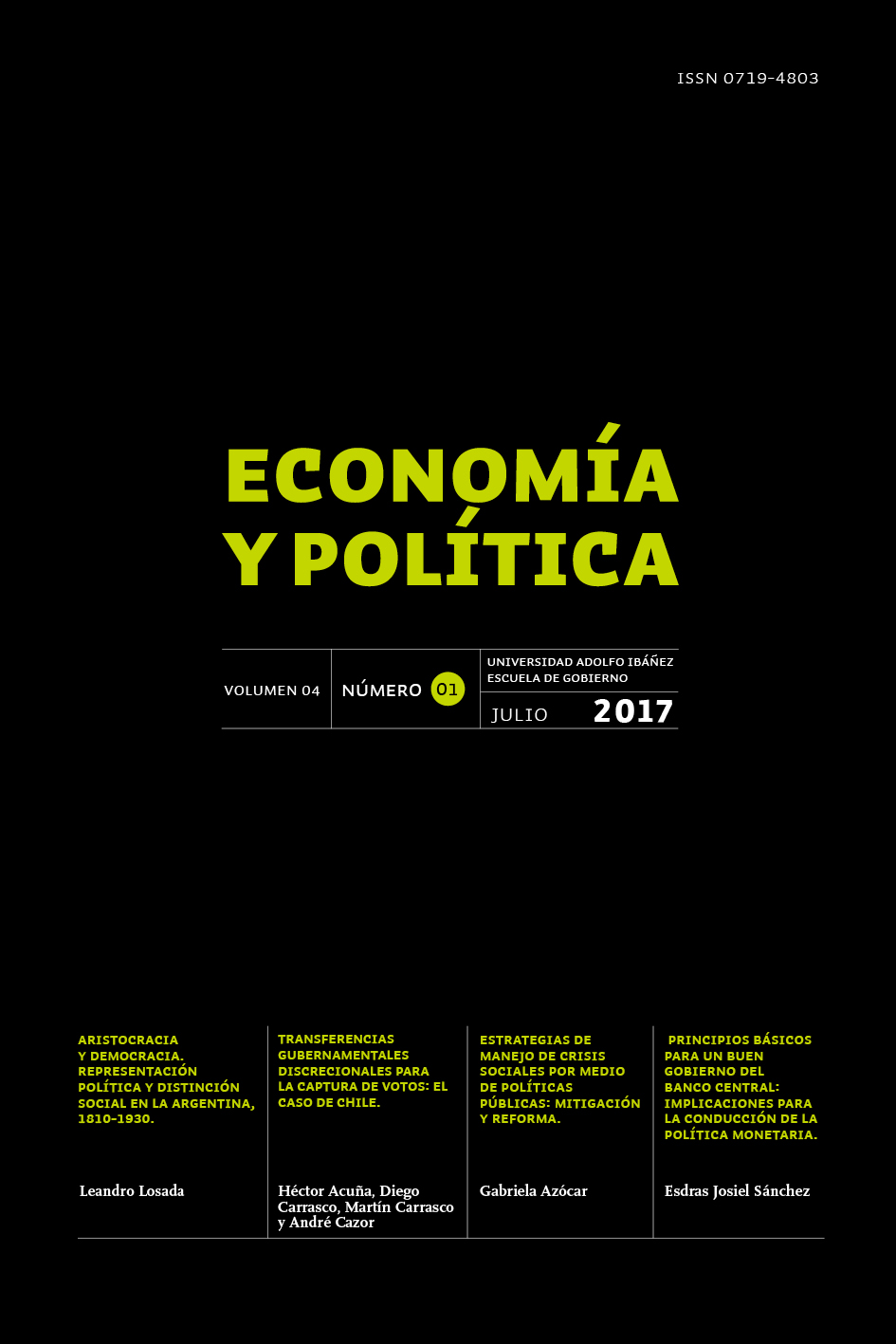Discretionary Government Transfers to Catch Votes: The Case of Chile
DOI:
https://doi.org/10.15691/07194714.2017.002Keywords:
Political economy, electoral advantage, incumbent advantage, discretionary transfer, discontinuous regressionAbstract
Discretionary transfers from the Chilean central government have grown significantly as a percentage of Chilean municipalities’ total financing. This paper investigates whether discretionary transfers act as a channel that gives electoral advantage to the incumbent political coalition that runs a municipality. We develop a simple theoretical model which predicts that the central government transfers more resources to the communes managed by mayors of its own political coalition, particularly in which the mayor won by a narrow margin. Then, in order to test the main results of the theoretical model, a Discontinuous Regression Design is applied using data from the 2004, 2008 and 2012 election periods. The results show that for the subset of communes with narrow voting margins, the central government transfers about an additional 250 million chilean pesos to the communes that are administered by mayors of its own political coalition. Moreover, observing only the communes with the largest number of inhabitants there is a difference about 730 million Chilean pesos. Disaggregating by type of transfers we show that political discretion would be given only in some types of transfers. This is an important result because it allows to identify the channels to be researched in the future and open questions about the influence of institutional and strategic factors. Finally, disaggregating by election period, the results are always consistent with 2008 and 2012 election periods, supporting the fact that this discretionary mechanism has become important over time.


